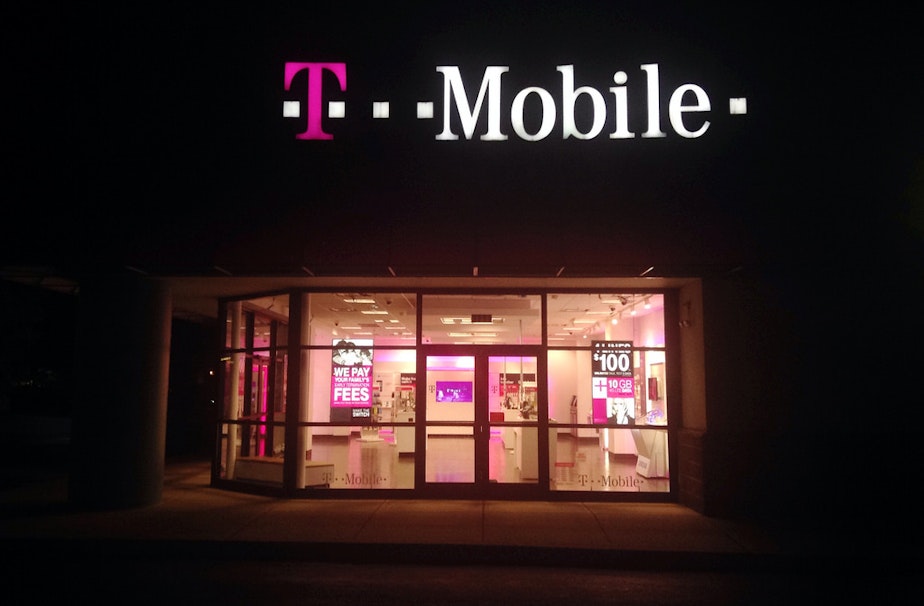Is the T-Mobile merger an economic victory for the Puget Sound region?

Kim Malcolm talks with Geekwire's Todd Bishop about the potential impact of the proposed merger between Bellevue-based T-Mobile and Sprint.
What are the basics of this proposed merger?
T-Mobile and Sprint have long been the third and fourth players in the U.S. wireless industry. The giants of the industry are Verizon and AT&T.
By combining, T-Mobile and Sprint are trying to become the third giant. They'll end up with more than 125 million customers in the U.S., which starts to rival the overall size of AT&T and Verizon.
They’ll be able to combine their network infrastructure in a way that they say will allow them to become the leaders in what's known as 5G technology. In other words, mobile wireless broadband on the same level rivaling your home wired connection. That's where the industry is headed, and that's what they're trying to do.
T-Mobile has about 50,000 employees, with many of them based in Bellevue. What jobs could be on the line?
A variety of jobs. One of the main motivations for corporate mergers is to find redundancies. I think there's at least the potential for some layoffs in the short term.
However, the companies are saying in the long-run, they plan to create thousands of new jobs. In the short run, it would not be a surprise to see some positions cut. Everything from administrative positions, mid-level management, and areas where there could be duplication between the two companies.
What’s the potential impact on consumers?
I think there's a real question, especially among Congress and regulators, about whether this will create more or less competition.
T-Mobile and Sprint are making the case that by combining and becoming a third giant, they will actually be a stronger competitor to AT&T and Verizon than either is individually now. I think there's a strong case to be made for that.
AT&T and Verizon can move markets with individual decisions. And we’ve seen T-Mobile start to do that on its own; things like unbundling phone contracts. I think there’s the potential for the larger T-Mobile to become even more of a disruptor. There's potential here for this to be a good deal for consumers.
What’s the potential long-term impact on the region’s economy?
If this deal results in three big wireless companies in the U.S., that’s huge. The market is dynamic and changing. Wireless, home broadband, and content are all combining and so it's a big competitive landscape.
But if you look at the U.S. wireless industry in particular, the implications for the Seattle region of having one of those big three here - it's pretty significant.


